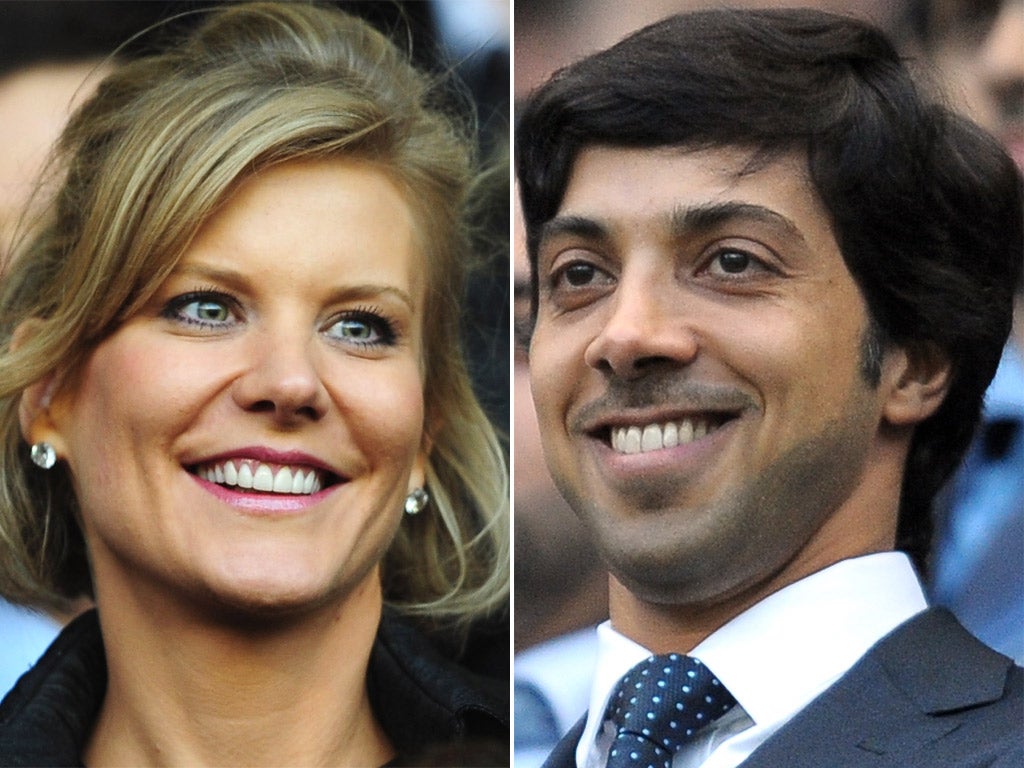Barclays back in the spotlight over £30m payout in 2008 rescue deal

Your support helps us to tell the story
From reproductive rights to climate change to Big Tech, The Independent is on the ground when the story is developing. Whether it's investigating the financials of Elon Musk's pro-Trump PAC or producing our latest documentary, 'The A Word', which shines a light on the American women fighting for reproductive rights, we know how important it is to parse out the facts from the messaging.
At such a critical moment in US history, we need reporters on the ground. Your donation allows us to keep sending journalists to speak to both sides of the story.
The Independent is trusted by Americans across the entire political spectrum. And unlike many other quality news outlets, we choose not to lock Americans out of our reporting and analysis with paywalls. We believe quality journalism should be available to everyone, paid for by those who can afford it.
Your support makes all the difference.It is the story that will not die down. Just as Barclays seems to be putting its past behind it, more revelations about the Middle Eastern cash calls that saved it from a government bailout during the financial crisis have surfaced.
The latest were provided by Euromoney, the trade title, which reported this week on leaked correspondence from the Abu Dhabi end of the rescue deal, involving its adviser Amanda Staveley.
Now Ms Staveley has engaged the law firm Aslan Charles Kousetta to investigate how those documents, including explosive emails between her and her clients, came to be seen by Euromoney and whether there are legal avenues to pursue.
Sources close to the deal maker said she believed the documents to have been stolen. That is because they involve several people close to the deal, some of whom have refused to make a comment on it.
It is understood that Ms Staveley believes she knows the identity of the person who leaked them and is weighing up options with her legal advisers, although it is thought she and her firm, PCP Capital Partners, will seek to avoid police involvement.
According to the report, Ms Staveley and her company were paid £29.5m for her role in advising on the deal in November 2008 that saw Abu Dhabi pump £3.5bn into Barclays. But not without a struggle. At the end of 2008 she was given a deadline of accepting £5m or nothing. At one point her personal assistant, Jo Mills, was said to have written in an email: "We are going to go armed and we will get this f****** money."
Sheikh Mansour was paid £110m in commission for investing in the bank, and if this is where the money Ms Staveley had to fight for came from it would raise eyebrows. The commission was reportedly deducted from the £3.5bn raised.
So far the principal focus of investigators has been on the Qatari end of the financing, fees paid, and the as yet unproven allegation that Barclays provided a loan to finance the Qatari investment into the bank. There is no suggestion of any wrongdoing on the part of the Qataris themselves, who also invested in June and November 2008 through both their sovereign wealth fund and a vehicle linked to the royal family.
While the revelations involving Ms Staveley are eye-opening, whether they will catch the attention of investigators remains to be seen. The Financial Services Authority would not comment yesterday.
Barclays has declined to comment on the affair because of the ongoing investigations. That is likely to remain its position until the various investigations are complete.
While the revelations have created more ripples in the media, the City is more sanguine.
David Buik, the veteran commentator for the stockbroker Panmure, summed up the feelings of many when he said: "Barclays – in fact, any bank – is an easy target in regards to the misunderstanding of business practices or culture. As the whole world knows, the culture in the Middle East is totally different to that in the West. If Amanda Staveley walks away with £30m as her share of the spoils [for advising Abu Dhabi], then good luck to her!"
He added: "Barclays must just walk away from this regurgitated irritation and become 'Little Red Riding Hood' – all things to all men under Sir David Walker and Antony Jenkins. It serves no useful purpose responding to yesteryear's requirements with today's solutions."
Mr Buik points out that, at the time the deal was done, while the terms may have been unpopular, it amounted to "an essential loan" that kept Barclays clear of the UK Government.
Timeline: Middle-East cash calls
June 2008
The Qatar Investment Authority and Sumitomo, a Japanese bank, pump £4.5bn into Barclays.
November 2008
A second fundraising raises £7bn, this time also involving Manchester City owner Sheikh Mansour, advised by Amanda Staveley.
June 2009
Abu Dhabi's International Petroleum Investment Company, part of the Abu Dhabian end of the fundraising, sells up, netting profits of £1.5bn.
July 2012
Barclays announces that four "current and former" employees under investigation over the Qatari deal.
August 2012
The Serious Fraud Office formally launches an investigation.
April 2013
Barclays announce that its finance chief, Chris Lucas, is to step down.
April 2013
Euromoney publishes leaked correspondence between Ms Staveley and Sheikh Mansour.
Join our commenting forum
Join thought-provoking conversations, follow other Independent readers and see their replies
Comments